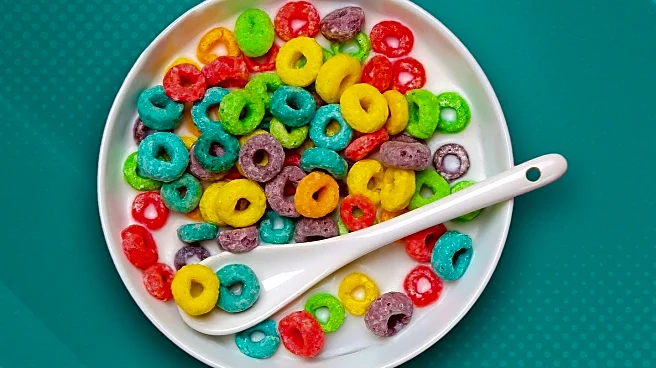What's Happening?
The NOVA food classification system, developed by the University of Sao Paulo, Brazil, categorizes foods based on their level of processing, recommending avoidance of ultra-processed foods like candy and soda.
However, it has sparked debate among nutrition experts regarding its classification of all breakfast cereals as ultra-processed. Registered dietician Courtney Pelitera argues that the NOVA scale is being misinterpreted, as processing includes all methods used during food manufacturing, not necessarily indicating healthiness. Kelly Toups LeBlanc, VP of Nutrition Programming at Oldways, contends that not all ultra-processed foods are equal, noting that whole grain cereals contain important food groups recommended in the Dietary Guidelines for Americans.
Why It's Important?
The debate over the NOVA classification system highlights the complexity of defining food healthiness based solely on processing levels. This has implications for public perception and dietary choices, potentially affecting consumer behavior and nutrition assistance programs. Whole grain cereals, despite being classified as ultra-processed, can provide valuable nutrition, especially to vulnerable populations. The discussion may influence future dietary guidelines and food labeling practices, emphasizing the need for a nuanced understanding of food processing and its impact on health.
What's Next?
Further research and discussion are likely to continue regarding the classification of foods within the NOVA system. Nutritionists and policymakers may seek to refine the criteria used to categorize foods, potentially leading to adjustments in dietary recommendations and public health messaging. There may also be efforts to educate consumers on the nutritional value of whole grain cereals and other foods currently labeled as ultra-processed.
Beyond the Headlines
The debate raises questions about the role of food marketing and consumer education in shaping dietary habits. It also highlights the cultural dimension of food consumption, as breakfast cereals are a staple in many diets. Long-term shifts in consumer behavior and industry practices could be influenced by increased awareness and understanding of food processing and its health implications.










